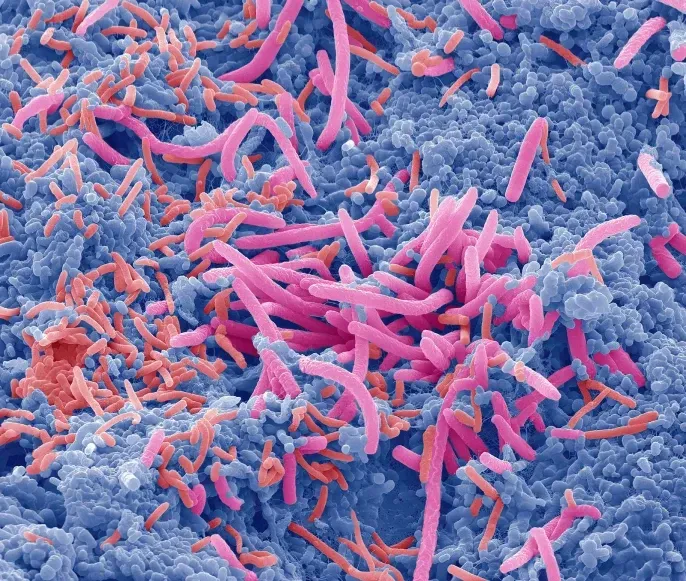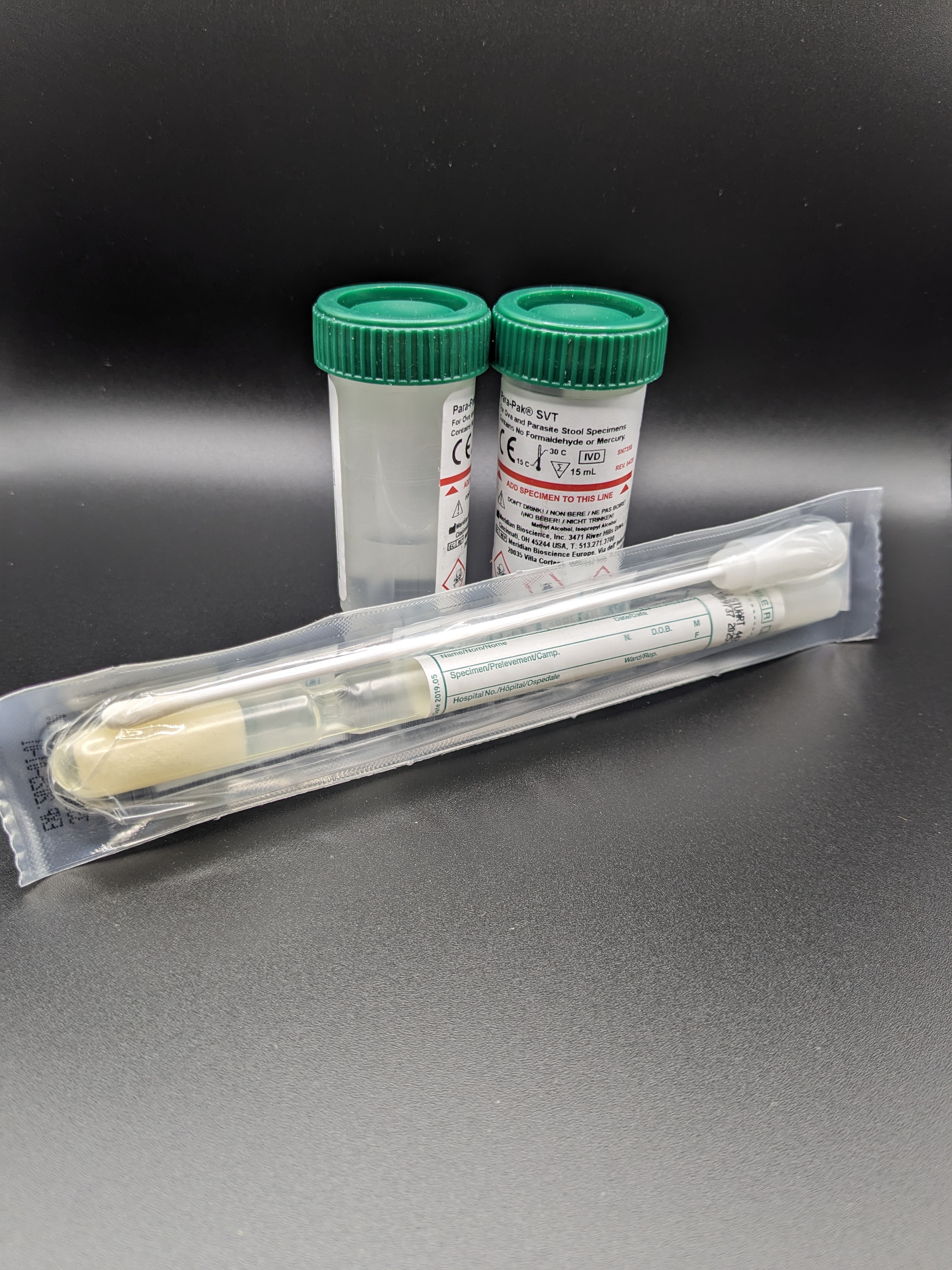
Latest Blog Articles

Parasite-Host Interactions
Parasite-Host Interactions: Unraveling the Complex Dynamics
Microbiome Studies
In recent years, the intricate relationship between parasites and their hosts has become a focal point of parasitology research. One of the most fascinating aspects of this interaction is the role of the microbiome. The microbiome, composed of trillions of microorganisms residing primarily in the gut, plays a pivotal role in maintaining the host’s health. It influences various physiological processes, including digestion, immunity, and even behavior.
Examining the Role of the Microbiome in Parasite Infection and Host Immunity
Research has increasingly highlighted the microbiome's significant impact on parasitic infections. The composition of the gut microbiota can affect the host's susceptibility to parasites. For instance, certain bacterial communities may either inhibit or promote the establishment and proliferation of parasites. This dynamic relationship is bidirectional; while the microbiome can influence parasite survival, the parasites themselves can alter the microbiome's composition.
Studies have shown that a diverse and balanced microbiome generally enhances the host's immune response, providing a robust defense against parasitic invasions. Conversely, dysbiosis, or an imbalance in the microbiome, can weaken the immune system, making the host more vulnerable to infections. Understanding these interactions opens new avenues for therapeutic interventions. For example, probiotics or prebiotics could be used to restore microbiome balance, potentially offering a novel strategy to combat parasitic infections.
Understanding How Gut Flora Can Influence the Outcome of Parasitic Infections
Gut flora, the microbial inhabitants of the gastrointestinal tract, play a crucial role in determining the outcome of parasitic infections. Specific bacterial species have been identified that can either support or hinder parasite survival. For example, certain Lactobacillus species have been found to produce metabolites that inhibit the growth of intestinal parasites such as Giardia. On the other hand, some bacteria can enhance parasite infectivity by modulating the host's immune response.
Moreover, the gut flora's interaction with the host's immune system is a critical factor in managing parasitic infections. The microbiome can influence the production of antimicrobial peptides, the activation of immune cells, and the overall inflammatory response. By understanding these mechanisms, researchers can develop targeted therapies that manipulate the microbiome to favor the host and disfavor the parasite.
Immune Evasion Mechanisms
Another critical aspect of parasite-host interactions is the ability of parasites to evade the host's immune system. Parasites have evolved a range of sophisticated strategies to avoid detection and destruction by the host’s immune defenses. This evolutionary arms race between parasite and host has led to a deepening understanding of immune evasion mechanisms.
Research on How Parasites Evade the Host's Immune System
Parasites employ various tactics to evade the host's immune system, ensuring their survival and replication. Some of the key strategies include:
Antigenic Variation: Parasites like Plasmodium (the causative agent of malaria) and Trypanosoma (responsible for African sleeping sickness) frequently change their surface proteins. This antigenic variation prevents the host's immune system from recognizing and attacking the parasite effectively.
Immune Modulation: Parasites can modulate the host's immune response to create a more favorable environment for their survival. For example, some parasites secrete molecules that suppress the host’s immune response, reducing inflammation and allowing the parasite to thrive.
Mimicry and Camouflage: Certain parasites produce proteins that mimic host molecules, effectively hiding from the immune system. This molecular mimicry can prevent the host's immune cells from recognizing the parasite as a foreign invader.
Intracellular Habitation: Some parasites, such as Leishmania and Toxoplasma, invade and live within host cells. By residing inside cells, these parasites can avoid detection by the host’s immune system, which primarily patrols the extracellular spaces.
Subverting Host Cell Functions: Parasites like Entamoeba histolytica can manipulate host cell signaling pathways to prevent apoptosis (programmed cell death), thereby prolonging the survival of the host cells they inhabit and ensuring their own persistence.
Identifying Strategies to Counteract These Mechanisms
Understanding the diverse mechanisms parasites use to evade the immune system is crucial for developing effective treatments. Researchers are exploring various strategies to counteract these evasion tactics:
Vaccine Development: By identifying and targeting conserved antigens that do not undergo variation, scientists aim to create vaccines that provide long-lasting immunity against parasitic infections.
Immune Modulators: Developing drugs that can enhance the host's immune response or block the parasite's immune-suppressing molecules could improve the host's ability to fight off infections.
Gene Editing Technologies: Tools like CRISPR can be used to study and disrupt key genes involved in immune evasion, providing insights that could lead to new therapeutic approaches.
Probiotic Therapies: Modulating the gut microbiome with specific probiotics may help enhance the host's immune response and reduce the impact of parasitic infections.
Conclusion
The study of parasite-host interactions, particularly in the realms of microbiome influence and immune evasion, is pivotal in advancing our understanding of parasitic diseases. These insights not only illuminate the complex biological dance between parasite and host but also pave the way for innovative treatments and preventive measures. As research progresses, the integration of microbiome studies and immune evasion mechanisms will undoubtedly continue to reveal new dimensions in the fight against parasitic diseases, offering hope for more effective and sustainable solutions.
Discover What's Really Going On Inside Your Gut!
Experiencing stomach troubles? Our Full GI Panel Test can help! Identify bacteria, parasites, and fungi with state-of-the-art accuracy. Quick, non-invasive, and thoroughly analyzed by experts.
Take the first step towards better gastrointestinal health today!
Feel Refreshed and Balanced with Freedom Cleanse Restore!
Reset your digestive system and boost your overall well-being with our Freedom Cleanse Restore supplement. Designed to support detoxification, promote digestive health, and enhance nutrient absorption.
Reclaim your health—experience the benefits today!
Contact Information
11445 E. Via Linda, #2-419
Scottsdale, Arizona 85259 USA
1-480-767-2522
Hours: 7:30am to 4:00pm
Monday through Thursday.
Hours: 7:30am to 1:00pm on Friday.
Closed Saturday - Sunday.



